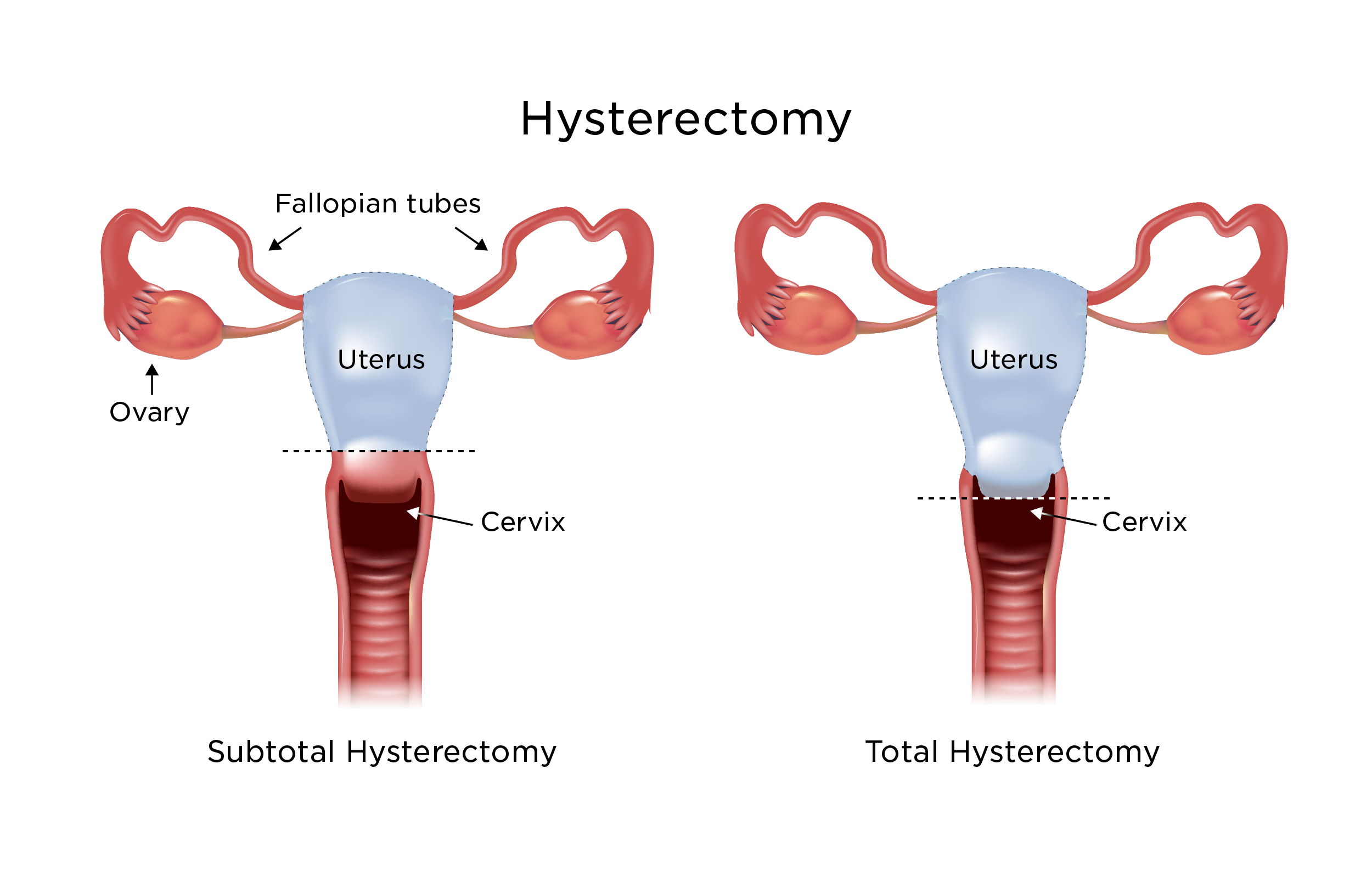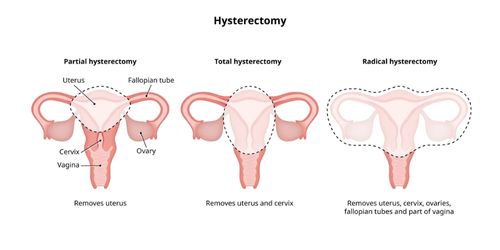Hysterectomy
A hysterectomy is a surgical procedure to remove a woman’s uterus (womb). In some cases, the ovaries, fallopian tubes, and surrounding tissues may also be removed depending on the medical condition. This surgery is often performed to treat chronic conditions such as heavy menstrual bleeding, fibroids, endometriosis, pelvic pain, or cancer.

What to Expect: Before, During & After
Before the Procedure
- Thorough pelvic examination and imaging (ultrasound/MRI)
- Blood tests and fitness evaluation
- Discussion of surgical approach (abdominal, vaginal, or laparoscopic)
- Fasting and admission preparation
During the Procedure
The type of hysterectomy depends on the condition and patient preference. It may involve:
- Total Hysterectomy: Removal of uterus and cervix
- Subtotal (Partial): Removal of uterus, cervix remains
- Radical: Uterus, cervix, and surrounding tissues (often for cancer)
- With/without removal of ovaries and fallopian tubes
After the Procedure
- Hospital stay: 1–3 days (may vary with technique)
- Recovery period: 4–6 weeks for open surgery, shorter for laparoscopic
- Pain management, wound care, and medication as advised
- Gradual return to normal activities; avoid heavy lifting initially

Benefits of Hysterectomy
- Relief from chronic pelvic pain and heavy bleeding
- Eliminates fibroids, endometriosis, or uterine cancer risk
- Improves quality of life and emotional well-being
- No longer need for menstruation-related treatments
Ideal Candidates
- Women with chronic uterine conditions unresponsive to medication
- Uterine fibroids causing bleeding or pressure symptoms
- Endometriosis or adenomyosis with persistent pain
- Prolapsed uterus or gynecologic cancers
Pre- and Post-Procedure Care
Pre-Procedure: Maintain hygiene, stop certain medications (e.g., blood thinners), follow fasting guidelines, and attend pre-surgery counseling.
Post-Procedure: Follow medication schedule, maintain wound hygiene, rest adequately, and attend all follow-up appointments. Emotional support is encouraged during recovery.
Testimonials
"After years of painful fibroids, I chose hysterectomy. Dr. Rainee's guidance and care changed my life." – Neha A., 42
"I was scared initially, but the laparoscopic procedure was smooth. I feel lighter and more active now." – Kiran T., 39
Frequently Asked Questions
Will I stop having periods after a hysterectomy?
Yes, once the uterus is removed, you will no longer have menstrual periods.
Can I still get pregnant after the surgery?
No, pregnancy is not possible after a hysterectomy as the uterus is removed.
Is hysterectomy a major surgery?
Yes, but advancements like laparoscopic and vaginal hysterectomy make it safer with faster recovery.
Will it affect my hormones or sex life?
If the ovaries are removed, hormone levels may change. Sex life often improves as symptoms like pain or bleeding are resolved.
How long is the recovery time?
Recovery takes 4–6 weeks for abdominal surgery, and 2–4 weeks for laparoscopic or vaginal procedures.
Contact Dr. Rainee Agrawal
Consult an experienced gynecologist to discuss whether a hysterectomy is the right solution for your health needs.
Contact Us+91 9179559565
Contact Person: Dr. Rainee Agrawal

